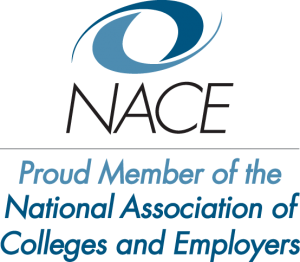Choosing a career path becomes a priority at different stages of your life. Starting college? Or returning to college after a summer (or longer) break? College is typically the last stop before the “real world,” where you join the workforce and enjoy a lifelong, rewarding career. How do we get there?
Most of us aren’t born into a family with a business spanning 1300 years of consecutive ownership, leaving us with a difficult choice: How do we choose a career path?
How Do You Choose a Career Path?
You might look at the careers of your friends and family for inspiration. This is a good method, but their experience and self-assurance can be daunting. They probably seem like they have life figured out. In truth, not much separates you from them besides some time, work, and choices. Particularly, choosing a career path.
Choosing a career path can be overwhelming. The choice is a hallmark example of decision paralysis, a psychological phenomenon where making a choice becomes more difficult as the number of available options increases. In other words, it’s hard to shake the feeling that by choosing one career path, you’re closing the door on every other option. Instead of deciding, you procrastinate, put it off, and focus on other things.
Six Tips for Choosing a Career Path
You may not feel ready to choose a career path now but, with some of the following techniques, you may find yourself becoming much more confident about your decision.
First, remember that you’re not choosing from every possible career. There are many careers that might not interest you, so you can already begin narrowing down your choices. Second, let go of making the “perfect decision”. You don’t need to be 100% sure, even for a career. You can always change later. But you probably want to be pretty sure. So how do you become pretty sure when choosing a career path?
Choosing a career path isn’t a one-step process. There are many ways to inform your decision, such as experiencing different jobs, exploring your likes and dislikes, and expanding your skillset. Below are some ideas to get started:
Tip #1 Try New Courses
College is excellent for this – never again will you be exposed to the same variety and depth of knowledge as you are now. Don’t just take classes in what you’re good at – explore, try new introductory courses, and be willing to struggle. You may find that you don’t like the content of a course, but you like some of the skills you learned along the way (or vice versa!)
Tip #2 Volunteer
Service is an excellent way to not only give back to a community but also hone skills, gain exposure to new fields, and make connections. Let your interests guide your choices here. If you’re having trouble finding an opportunity, there are ways to find opportunities online!
Tip #3 Intern
Interning is critical for college students. Often, your internship experience makes or breaks your transition to the workforce, with interns gaining valuable job experience, connections, and often offers upon graduation. If you end up not liking your experience, you haven’t committed much besides a summer or semester. Try another one!
Tip #4 Hobbies
Hobbies are a great way to develop skills and discover your interests. You shouldn’t choose a hobby just to have a hobby; rather, take something you like doing now and take it to the next level. Like playing video games? Start building gaming computers or modding games. Like animals and nature? Start an aquarium and learn about the natural chemical processes that stabilize aquatic environments. Like reading and writing? Start entering essays or short stories into competitions.
Tip #5 Shadow and Find a Mentor
Finding and developing a relationship with a mentor can be hugely beneficial. Most schools and universities provide programs for mentorship, both in general and for specific groups (e.g., women in STEM). Look into what your school or program offers. If you’re not satisfied, find someone yourself: People are generally very open to helping others, providing guidance, giving advice, and talking about themselves. Being polite and curious is all you really need to get started. Mentorship is a great first step into building a network too.
Tip #6 Career Guidance
Likewise, your school or university might offer career guidance or counseling services. These services are usually free to students, and you can get recommendations and insight based on years of scientific study, research, and experience in several different fields. If you don’t have access to a career counseling service, PathwayU is a great resource.
Don’t be afraid to reach out, explore, and collect information while choosing a career path. Remember – get to a point of reasonable confidence in a decision. Don’t let the search for a perfect fit hold you back from pursuing and taking opportunities that are available to you now.







